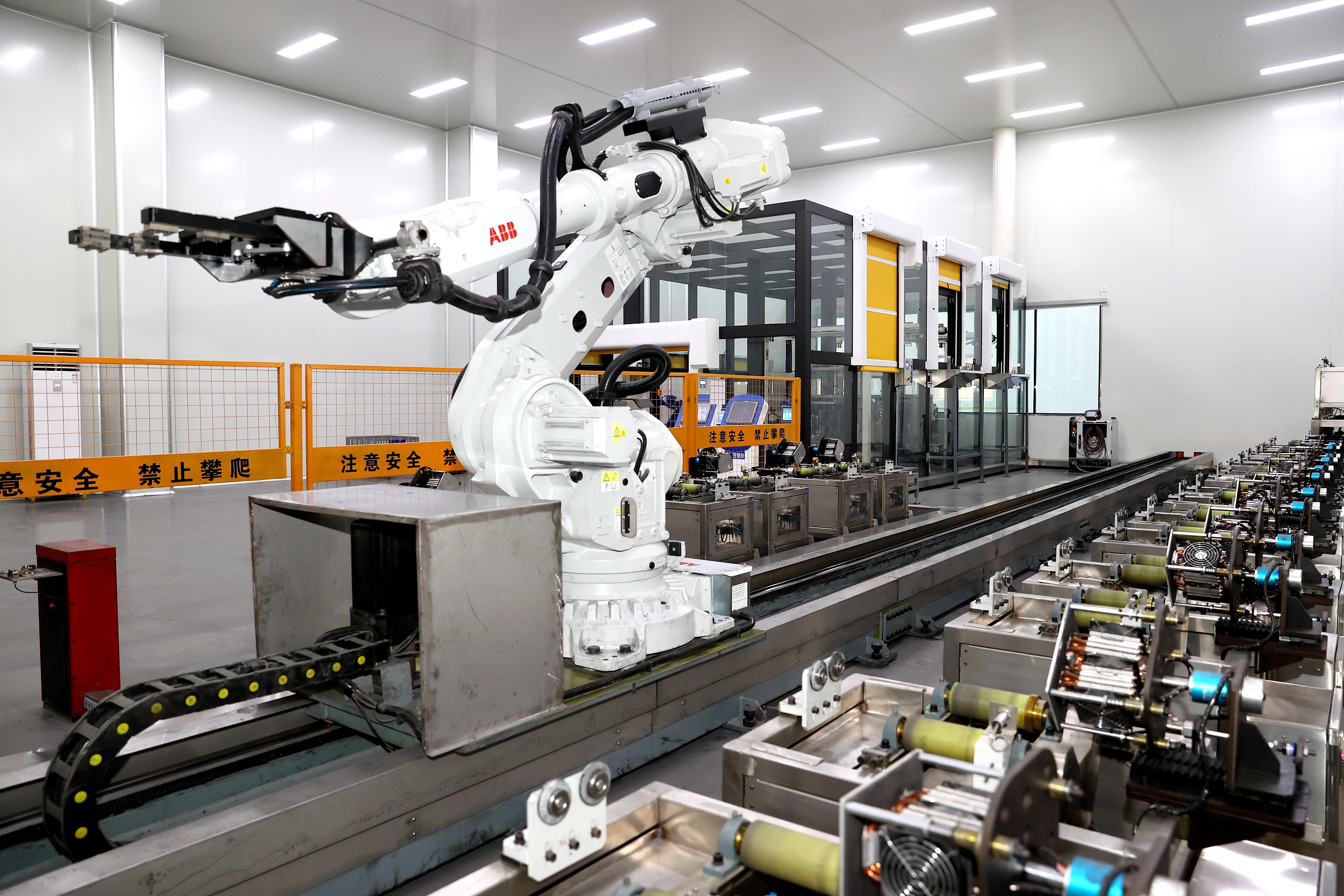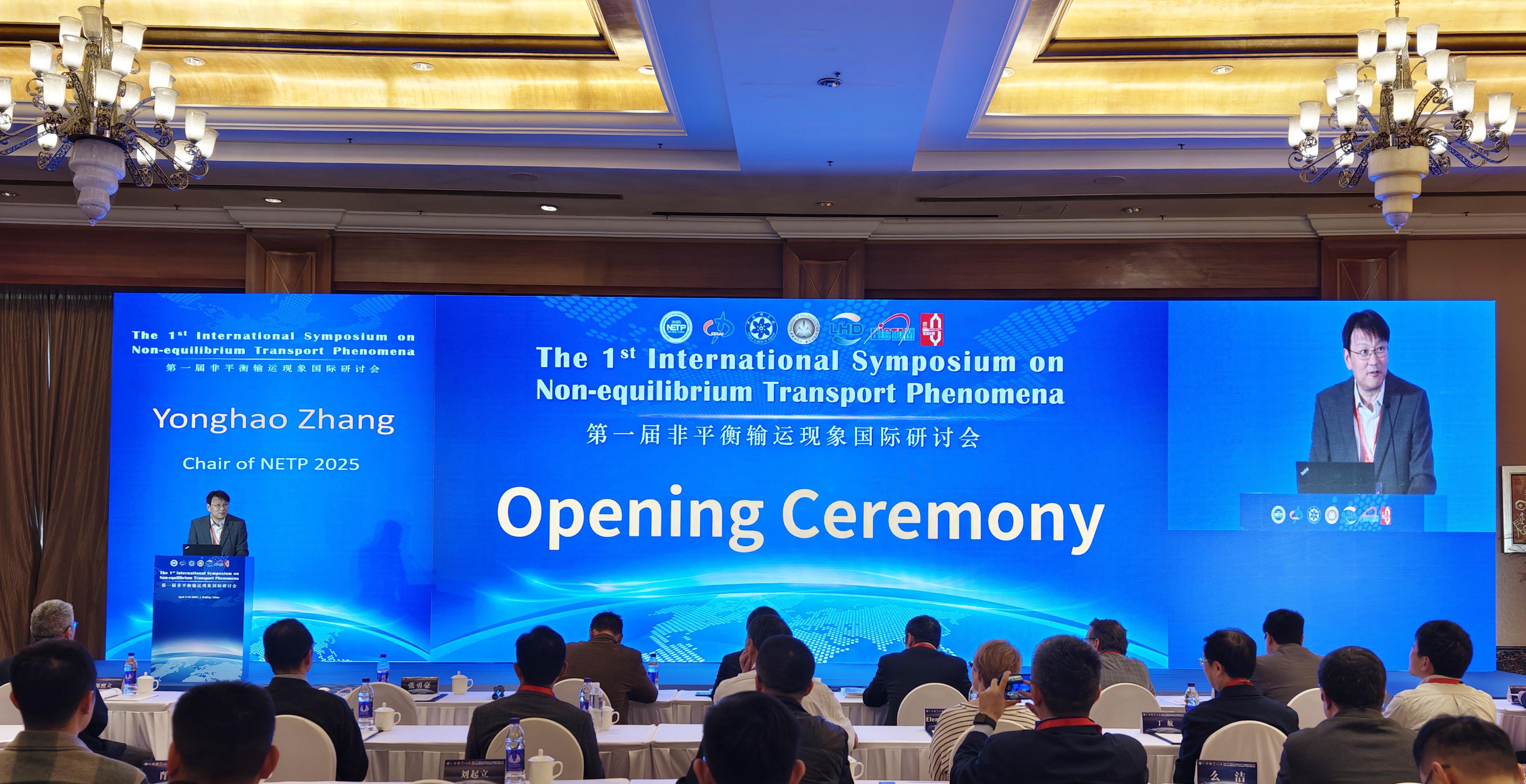Ministers Elaborate Key Moves to Boost Innovation in 2024

A robotic arm assembles diesel engines on an intelligent manufacturing line in Luoyang city, Henan province, delivering an enhanced speed, efficiency, and precision across diverse tasks. (PHOTO: VCG)
By CHEN Chunyou
"The Ministry of Science and Technology will prioritize its work in three areas: intensifying efforts to address crucial problems in science and technology, bolstering the cultivation of strategic forces, and deepening the reform of sci-tech systems and mechanisms," minister of science and technology Yin Hejun told journalists at the first ministers' corridor during the 2024 Two Sessions.
Although the 2024 Two Sessions have wrapped up, the ministers' corridor interviews about supporting sci-tech development remain relevant, setting the tone for China's ongoing sci-tech development with clear-cut policy support.
Solid support in place
Jin Zhuanglong, minister of industry and information technology, said as the new round of in-depth sci-tech revolution and industrial reform develops, industrial development opportunities and challenges coexist.
Jin said the Ministry of Industry and Information Technology (MIIT) will promote high-quality development of the key industrial chain of the manufacturing industry, and accelerate the construction of a modern industrial system with advanced manufacturing as the backbone.
The MIIT will implement the work plan for the stable growth of 10 industries, which took effect in 2023. These industries are iron and steel, nonferrous metals, petrochemicals, chemicals, building materials, machinery, automobiles, electric power equipment, light industry and electronic information manufacturing.
How can the integration of sci-tech innovation and industrial innovation be accelerated? Jin's answer was, by "developing advanced technologies, realizing their industrialization, and speeding up the formation of new quality productive forces."
China has 178 high-tech zones and 465,000 national high-tech enterprises. It is necessary to give full play to the main role of enterprises in innovation, and continue promoting building a national manufacturing innovation center, he said.
Strengthening patent transformation and application plays an important role in promoting high-quality growth, said Shen Changyu, commissioner of the China National Intellectual Property Administration (CNIPA).
"This year, China will fully implement the patent open licensing system," Shen said. Under this system, patentees may publish a declaration to license their patents in CNIPA gazettes. Those agreeing to the asking prices and terms of the patentees may acquire the relevant patent license quickly, which will "reduce the systematic transaction cost and improve patent conversion efficiency."
According to Li Yunze, minister of the National Financial Regulatory Administration (NFRA), the NFRA will support emerging industries and future industries, and promote the digital and intelligent transformation of traditional industries to create new momentum and advantages for growth.
Quality development matters
The ministers underpinned not just growth, but quality growth. Luo Wen, director of the State Administration for Market Regulation, said, "We will select a group of leading standard-led enterprises in such fields as information and communications, and new energy vehicles, and launch some landmark projects with improved quality to strengthen the industrial chains."
These landmark projects will be implemented around key industrial chains such as industrial robots and large-scale application of the BeiDou Navigation Satellite System. Measures will be taken to accelerate the research and formulation of technical standards of key processes as early as possible, Luo added.
The development of enterprises needs sustainable financial support, especially those that use special and sophisticated technologies to produce novel and unique products. In January, the NFRA issued a document to provide full life-cycle financial services to sci-tech enterprises. "Currently, the NFRA is exploring using financial asset investment companies as a platform to further expand the scope of equity investment pilots and increase support for sci-tech enterprises," Li said.







